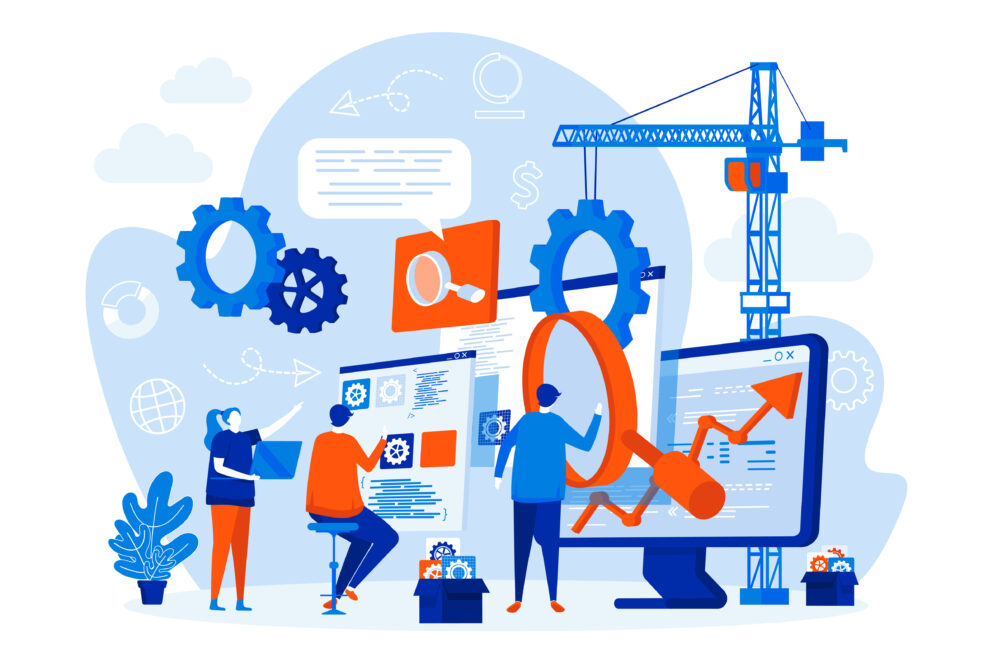The Evolution of CRM in the Era of Big Data

Summary
This blog explores the transformation of Customer Relationship Management (CRM) with the integration of big data. It discusses how big data enhances CRM strategies by providing deeper insights into customer behavior and preferences, while also addressing the challenges and innovative solutions in merging these technologies. The blog concludes by emphasizing the necessity of this integration for businesses seeking a competitive edge and improved customer satisfaction.
By Cameron Katoozi, Marketing Consultant at Heinz Marketing
Introduction
Customer Relationship Management (CRM) tools have evolved significantly since their inception. Initially, it was about managing customer interactions and data, a practice crucial for businesses to understand and serve their clients efficiently. With the arrival of big data, a term that epitomizes the massive, complex datasets generated in the digital era, the landscape of CRM has undergone a transformative shift. In this blog, we dive into how big data is revolutionizing CRM strategies, offering businesses exceptional insights into customer behavior and preferences.
The Basics of CRM and Big Data
At its core, CRM is a strategy for managing an organization’s interactions with current and potential customers. It uses data analysis about customers’ history with a company to improve business relationships, focusing on customer retention and driving sales growth.
Enter big data: characterized by its volume, variety, velocity, and validity, it’s an asset that, when effectively harnessed, can provide invaluable insights. The synergy between CRM and big data lays the foundation for deeper, more actionable insights, allowing businesses to not only understand their customer base but also anticipate their needs.
How Big Data Enhances CRM
The synergy of CRM and big data is a game-changer – it turns every customer interaction into an opportunity for insight, making every touchpoint a source of valuable data that can inform and enhance every aspect of the customer relationship. Big data plays a pivotal role in providing a 360-degree view of customers. This holistic perspective enables businesses to tailor personalized marketing campaigns and predict customer behavior with greater accuracy.
Big data also enables more efficient and effective marketing strategies. By understanding customer preferences and behaviors, businesses can target their marketing efforts more precisely, leading to higher conversion rates and better ROI on marketing spend. This includes optimizing marketing channels, personalizing marketing messages, and timing campaigns to reach customers when they are most receptive. For instance, analyzing customer purchase histories and social media behavior can help businesses customize their marketing efforts, thereby improving customer engagement and potentially increasing sales. The benefits of this integration are diverse, ranging from enhanced customer experience to a more efficient sales process.
Challenges and Solutions
However, integrating big data into CRM is not without its challenges.
Integrating big data into CRM systems presents unique challenges. These challenges can be complex, but with the right strategies and solutions, they can be effectively managed and overcome.
Data Integration and Quality Issues
Challenge: One of the primary challenges is integrating disparate data sources and ensuring the quality of data. Businesses often deal with various data formats and sources, which can lead to inconsistent, incomplete, or redundant data.
Solution: Implementing robust data integration tools and processes is essential. These might include advanced data warehousing techniques and data cleansing tools to ensure data accuracy and consistency. Employing ETL (Extract, Transform, Load) processes can help in effectively merging and harmonizing data from different sources.
Data Security and Privacy Concerns
Challenge: With the increasing volume of customer data being collected, concerns around data security and privacy are more prominent than ever. Businesses must protect sensitive customer data from breaches and ensure compliance with privacy regulations.
Solution: Investing in strong cybersecurity measures, including encryption, access controls, and regular security audits, is vital. Additionally, adhering to privacy regulations like GDPR and CCPA requires a comprehensive understanding of the regulations and often the implementation of policies and technologies to ensure compliance, such as data anonymization techniques and consent management systems.
Managing Data Volume and Complexity
Challenge: The sheer volume and complexity of big data can be overwhelming for traditional CRM systems, leading to performance issues and difficulty in extracting actionable insights.
Solution: Leveraging cloud-based CRM solutions and scalable big data platforms can help manage the volume and complexity of the data. These technologies offer the necessary computational power and storage capacity, along with advanced analytics capabilities, to handle large datasets efficiently.
Balancing Automation with Human Insight
Challenge: While automation in CRM through big data analytics offers efficiency, it can sometimes lead to impersonal customer experiences if not managed properly.
Solution: It’s important to strike a balance between automated processes and human insights. This can be achieved by integrating AI and machine learning with human oversight. Ensuring that customer interactions have a personal touch, even when automated, is key to maintaining a positive customer experience.
Innovative Tools and Technologies in CRM
The integration of innovative technologies has significantly impacted CRM. AI-driven CRM platforms, machine learning algorithms for customer segmentation, and predictive analytics for forecasting sales trends are just a few examples. These technologies have revolutionized how businesses interact with and understand their customers.
AI-Driven CRM Platforms: Artificial Intelligence (AI) in CRM systems enables smarter, automated decision-making. AI-driven CRM can analyze customer data to provide predictive insights, automate repetitive tasks, and offer personalized customer experiences.
- Impact: AI enhances the efficiency of CRM processes, provides personalized interactions based on customer data, and helps in forecasting sales trends and customer behaviors.
Machine Learning for Customer Segmentation: Machine learning algorithms are used to segment customers into groups based on behavior, preferences, and demographics. This segmentation is more dynamic and accurate compared to traditional methods.
- Impact: Improved segmentation allows for more targeted marketing campaigns and a better understanding of customer needs, leading to increased sales and customer loyalty.
Predictive Analytics: Predictive analytics in CRM involves using data, statistical algorithms, and machine learning techniques to identify the likelihood of future outcomes based on historical data.
- Impact: Businesses can predict future customer behaviors, such as purchasing patterns and product preferences, allowing for proactive engagement and personalized marketing strategies.
Chatbots and Virtual Assistants: CRM systems are increasingly incorporating chatbots and virtual assistants for customer service. These AI-driven tools can handle routine inquiries and provide instant responses to customer queries.
- Impact: They enhance customer service efficiency, reduce response times, and are available 24/7, improving overall customer satisfaction.
Internet of Things (IoT) Integration: IoT devices provide real-time data collection from various customer touchpoints. Integrating IoT with CRM systems offers a continuous stream of customer usage data and interactions.
- Impact: IoT integration helps businesses gain deeper insights into customer behavior, preferences, and product usage patterns, enabling more personalized and timely services.
Conclusion
The integration of big data into CRM represents a significant leap forward for businesses in understanding and catering to their customers. This transformation is not just an enhancement; it’s a necessity for businesses seeking a competitive edge and heightened customer satisfaction. As we move forward, businesses need to embrace these changes, continuously innovate, and adapt to the evolving landscape of customer relationship management. The future of CRM, intertwined with big data, promises even more exciting developments and opportunities for businesses willing to embark on this journey.





